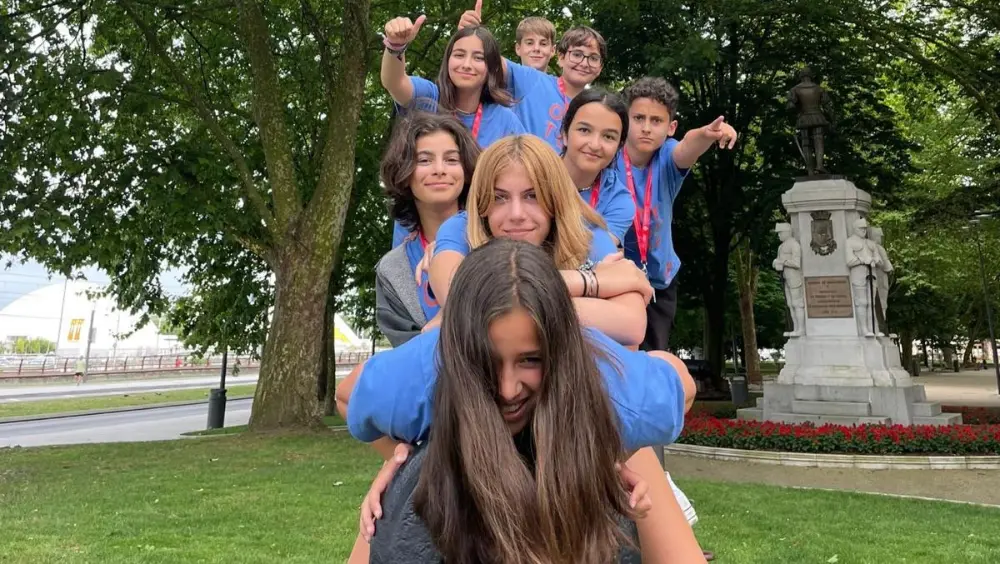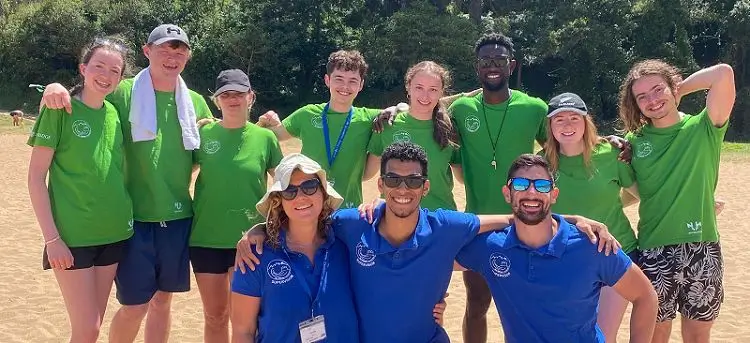Choosing an English camp is an important decision. Parents look for a place where their children are safe, enjoy the summer, and at the same time improve their English level. However, lack of information or rushing to book can lead to mistakes that later result in a bad experience for the children.
Sometimes the mistake lies in going for the lowest price, not thoroughly checking the facilities, or trusting vague promises such as “English all day” without verifying what that really means. The result is that many children return home without having practiced the language, feeling unmotivated or disappointed because the camp did not meet their expectations.
The good news is that most of these mistakes are easy to avoid if parents know what to look for before making the decision. In this article, we review the most common mistakes when choosing an English camp and give you the keys to ensure your child enjoys a safe, enriching, and truly immersive experience.
One of the most frequent mistakes parents make is deciding based solely on price. It’s understandable: English camps are a significant investment, and the differences between one option and another can be considerable. However, choosing the cheapest one without analyzing what it actually includes can end up being costly in terms of safety, quality of experience, and language learning.
An inexpensive camp might cut corners in key areas such as:
- Basic facilities with overcrowded dormitories and unhygienic shared bathrooms.
- Little supervision, with very high monitor-to-child ratios.
- Limited or repetitive activities focused on classes rather than experiences.
- Lack of full insurance coverage or on-site medical staff.
When these shortcomings accumulate, children not only enjoy less but also practice less English, as the quality of the experience depends directly on investment in facilities, staff, and activities.
At the Village, the priority is not to be the cheapest camp but to offer an experience of the highest quality and safety. Participants stay in a 4★ hotel with double rooms and private bathrooms, enjoy a 52,000 m² sports campus, benefit from a 1 coach per 5 children ratio, and are covered by full insurance and 24-hour nursing care. An investment that ensures every euro translates into comfort, safety, and real, lasting English learning.

Not checking the activity program
Another common mistake parents make is not reviewing in detail what activities the camp includes. They are often drawn by catchy phrases like “English all day” without checking what that means in practice. The result can be a program limited to a couple of hours of class per day and free time in Spanish, which minimizes real language learning.
A good program must meet two conditions: variety and consistency. Variety prevents boredom and ensures children find activities that motivate them—whether sports, creativity, nature, or culture. Consistency ensures that all these experiences take place in English, turning every moment into a learning opportunity.
Camps that don’t meet this standard often repeat dull routines, with improvised or poorly planned activities, which demotivate participants and hinder language immersion.
At the Village, the program is designed so that every day is different and engaging. Children can choose from sports like surfing, sailing, tennis, or football with UEFA and FIFA coaches, creative workshops like the Broadway Academy or Media Academy, and excursions exploring Asturian nature and culture. All of it takes place in English, with international coaches who turn each activity into a real and fun learning experience.
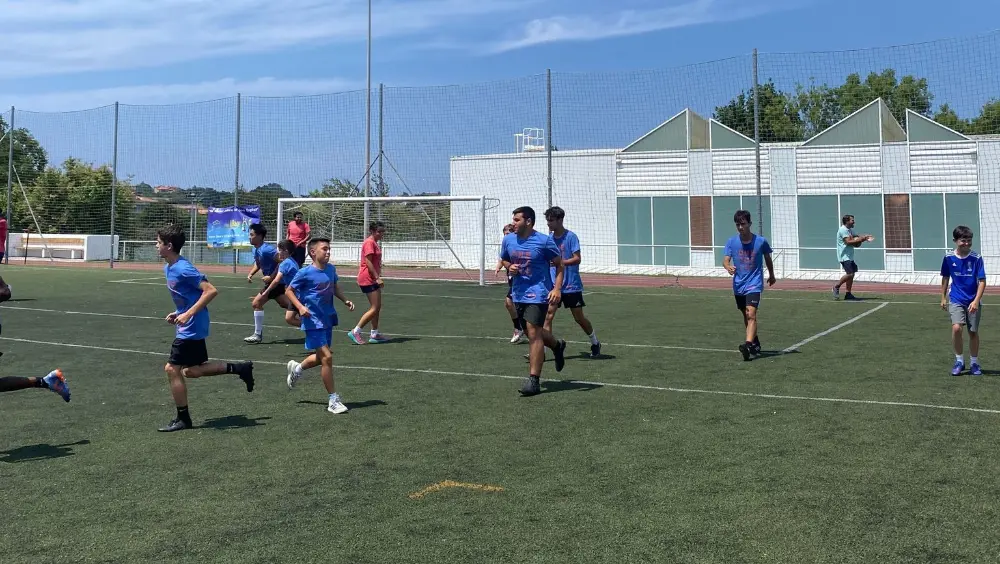
Not checking facilities and surroundings
Facilities are one of the most decisive aspects of a camp experience, yet many parents overlook this point before booking. It’s easy to be swayed by attractive photos in a brochure or on a website, but what really matters is verifying the quality of the dorms, bathroom hygiene, pool safety, and size of sports areas.
Failing to review these details can lead to uncomfortable situations: overcrowded dormitories that make it hard to rest, poorly maintained bathrooms, inadequate dining areas, or deteriorated sports facilities. The environment also plays a key role—it’s not the same to have a closed and secure campus as open facilities without access control.
A camp with limited facilities not only reduces children’s comfort but also affects their motivation and safety. A poorly maintained space can become a barrier to enjoying and learning with confidence.
At the Village, facilities are one of the major advantages. Children stay at the 4★ URH Zen Balagares Hotel, with double rooms and private bathrooms, enjoy a 52,000 m² sports campus with five swimming pools, football, tennis, padel, and basketball courts, and benefit from a safe natural environment between sea and mountains. This combination of comfort and safety makes every day a peaceful and enriching experience for both children and families.
Ignoring monitor ratios and personal attention
The monitor-to-child ratio is a detail many parents don’t ask about before booking, yet it’s one of the factors that most influences safety and quality. A camp might have excellent facilities, but if there isn’t enough staff to supervise and guide the children, the result will be superficial and impersonal care.
A high ratio—for example, one monitor for every 10 or 12 children—means some participants will receive less support, especially during critical moments such as meals, water activities, or nighttime. This not only creates safety risks but also social integration difficulties for shy or introverted children.
Conversely, a low ratio ensures that each child receives the attention they need, doesn’t go unnoticed, and always has an adult reference available to answer questions, offer support, or build confidence.
At the Village, the ratio is one of the lowest in the sector: 1 coach per 5 participants. This allows for individualized supervision in all activities and a much smoother social integration. Thanks to this closeness, coaches truly get to know each child, support their progress, and ensure that everyone feels accompanied and safe at all times during the camp.
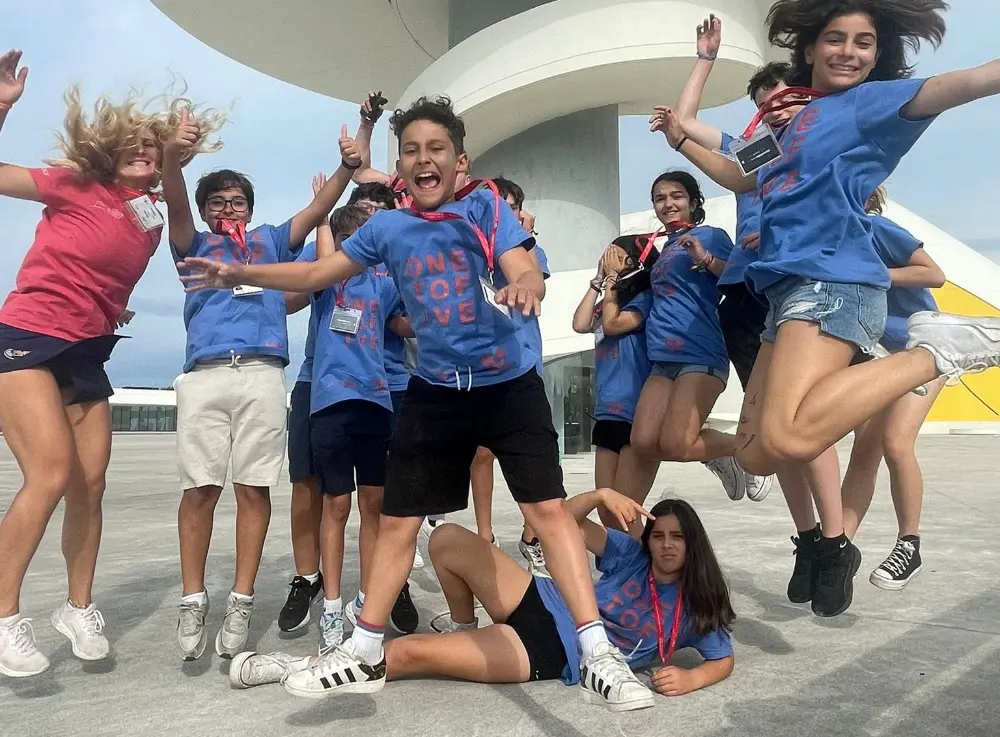
Not asking about staff training and background
A very common mistake is assuming that all monitors at an English camp are native speakers or qualified to teach the language. In reality, many programs have monitors who mostly speak Spanish or lack specific training in education and child supervision.
This limits children’s learning and can turn the camp into a superficial bilingual program rather than a true immersion. To ensure English is used naturally, it’s essential that monitors are international, use the language in all interactions, and have experience working with children and teenagers.
Asking about origin, qualifications, and percentage of international staff is one of the best ways to tell apart a camp that merely promises immersion from one that truly delivers it.
At the Village, the difference is clear: 80% of coaches are international, ensuring English is the main language throughout the day. In addition, Cambridge University Press & Assessment supervision guarantees a high-quality pedagogical approach, while the reduced 1:5 ratio allows coaches to closely accompany each participant. This makes the human team one of the camp’s greatest strengths.
Not ensuring medical protocols and insurance coverage
Most parents focus on activities and accommodation but forget to check one essential aspect: medical protocols and insurance. A quality camp must be prepared to respond to any unforeseen situation—from a minor sports injury to an allergic reaction or more serious medical emergency.
The mistake is assuming that “every camp has it” without asking for details. The truth is that some programs lack permanent nursing, have limited insurance coverage, or don’t have a clear emergency plan, which can create unsafe situations.
A responsible camp should offer at least:
- 24-hour nursing service, with qualified staff to provide care and administer medication.
- Accident insurance covering any incident during the stay.
- Medical assistance insurance to guarantee quick attention in case of emergency.
- Liability insurance as additional protection for families.
- Clear emergency protocols known by the entire staff.
At the Village, all these aspects are guaranteed. The camp has 24-hour nursing service, as well as accident, medical, and liability insurance included in the registration. In addition, it has tested emergency protocols coordinated with staff and facilities, giving parents peace of mind that their children are always protected.
Confusing a bilingual camp with a total immersion camp
Another common mistake is thinking that a bilingual camp is the same as a full immersion camp. In bilingual programs, part of the activities are conducted in Spanish, and English is used only partially or in limited contexts. This can be a first approach to the language but doesn’t create enough impact to significantly improve fluency.
Total immersion, on the other hand, means English becomes the language of communication at all times: during sports, meals, creative workshops, and even excursions. This is the difference parents notice when choosing a camp where children truly live English all day, instead of programs that only alternate languages or rely on a few hours of class.
Many parents fail to ask for details and trust general terms like “bilingual camp.” The key is to demand concrete figures: how many hours a day English is spoken, what percentage of coaches are international, whether activities are fully conducted in English, and if there are exams or traditional classes.
At the Village, immersion is total: more than 200 hours of English in 15 days, an 80% international coaching team, participants from 12 nationalities, and a methodology without classes or exams, supervised by Cambridge University Press & Assessment. This way, English stops being a subject and becomes the natural language of every camp experience.
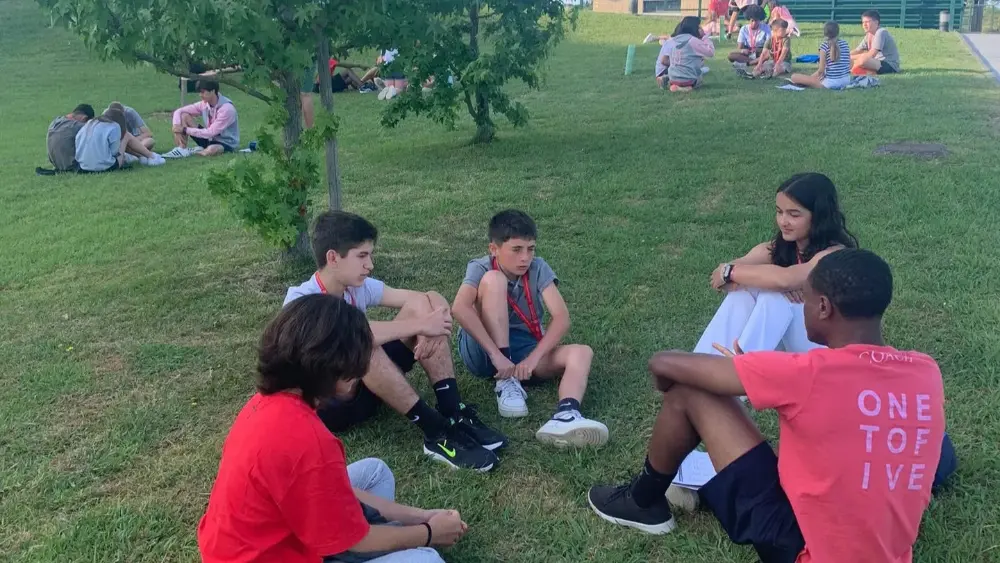
Not choosing a camp adapted to the child’s age
A frequent mistake parents make is thinking all English camps work the same way, without considering that the needs of an 8-year-old are very different from those of a 16-year-old. When programs aren’t adapted to each age group, younger children can feel overwhelmed, and older ones may feel unmotivated by activities that are too childish.
Choosing a camp without differentiating by age can lead to:
- Difficulties in social integration between children of very different maturity levels.
- Activities that are too demanding for the youngest or too simple for teenagers.
- Lack of appropriate emotional support for each developmental stage.
That’s why it’s essential to ask whether the camp offers programs differentiated by age groups and how activities and daily life are organized in each case.
At the Village, this aspect is covered with two specific programs:
- Kids (8–12 years): designed so that the youngest enjoy guided activities, close supervision, and dynamics adapted to their level of autonomy.
- Teens (13–17 years): aimed at teenagers looking for independence, higher-level sports and creative challenges, and more mature multicultural coexistence.
This way, each child lives an experience suited to their age, ensuring they have fun, integrate easily, and make the most of English—whether it’s their first or fifth international experience.
How to choose safely and avoid mistakes
Avoiding the most common mistakes when choosing an English camp is not difficult, as long as parents know what to look for. Price shouldn’t be the only factor; activities should be varied and in English; facilities must be safe and comfortable; and both the staff and medical protocols are decisive. It’s also essential to distinguish between a bilingual camp and a real immersion camp and to make sure the program suits the child’s age.
When a camp meets all these requirements, parents gain the peace of mind of having made the right choice, and children enjoy an experience that combines safety, fun, and real learning.
At the Village, every detail is designed to avoid these mistakes: 4★ hotel with double rooms and private bathrooms, premium sports campus, 1 coach per 5 participants ratio, over 200 hours of English in 15 days, international coaches, 24-hour nursing, full insurance, and separate Kids and Teens programs. Everything needed to make the choice safe and the experience unforgettable.
Choosing an English camp shouldn’t be a leap of faith or a decision made lightly. It’s an experience that can shape a child forever—giving them confidence, opening their world, and showing them that learning English can be as natural as making friends or playing outdoors.
When parents get informed, avoid mistakes, and choose a quality camp, they’re giving their children much more than a vacation. They’re giving them confidence, motivation, and memories they’ll carry for life.
At the Village, we know how important this decision is. That’s why every detail is designed so parents feel at ease and children live a summer they’ll always remember.

